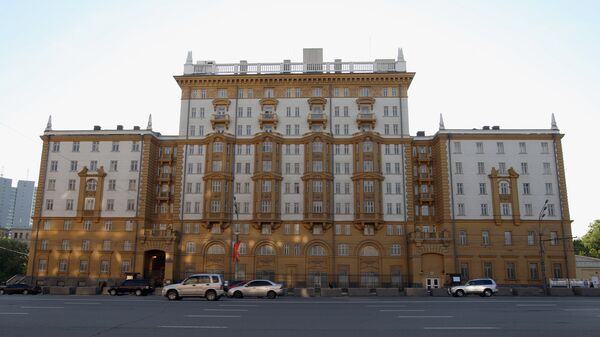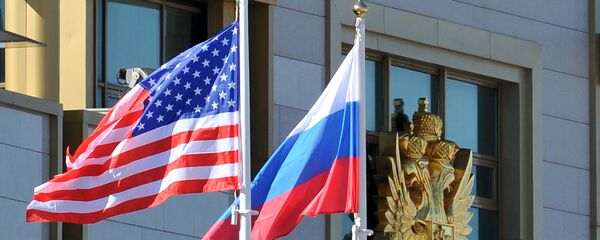On July 28 the Russian Foreign Ministry suspended the use of all US Embassy warehouses as well as its compound in Moscow, and instructed the US to cut the size of its diplomatic staff in Russia to 455 people by September 1.
Speaking at a weekly press briefing on August 9, US State Department spokeswoman Heather Nauert expressed regrets regarding the expulsion of American diplomats, which came as a response to a series of anti-Russia measures the US adopted under the previous and current administrations.
"In terms of the expulsions of our US diplomats and other citizens who are working over there at our embassy, we consider that to be a regrettable step," Nauert said, "Limiting our diplomatic presence there calls into question Russia's seriousness about trying to create a better relationship with the United States."
However, the Russian Embassy in the United States reminded the State Department that it was not Moscow who threw the first punch.
"Russia would have never taken response measures against the United States if the United States' previous administration had not expelled Russian diplomats and had not eliminated access to Russian diplomatic property, and if the sanctions had not been adopted under the current administration, we would not have had to resort to these measures. The exchange of barbs is not our choice," the Embassy said in a statement.
Improvement of🇷🇺🇺🇸 relations, finding areas of cooperation should be done on t/ basis of due account of each other’s interests, mutual trust pic.twitter.com/UzrAOD8DTr
— Russia in USA 🇷🇺 (@RusEmbUSA) 10 августа 2017 г.
Earlier this month a new package of restrictions against Russia was signed into law by US President Donald Trump after it had passed almost unanimously by Congress.
The new law targets Russia's defense, intelligence, mining, shipping and railway industries and restricts dealings with Russian banks and energy companies.
"It is regrettable that the law on sanctions against Russia has come into effect in the United States. Its very title — 'Countering America's Adversaries Through Sanctions Act' — speaks for itself. Its initiators are trying to impress on the US public a certain image of our country," Russian Foreign Ministry wrote on its Facebook account on August 3.
"This is a very short-sighted and even dangerous policy fraught with undermining stability for which Moscow and Washington bear a special responsibility," the Ministry highlighted.
Commenting on the Kremlin's move Salin emphasized that Russia merely couldn't to leave Washington's actions unanswered. However, according to the Russian scholar, it appears that Moscow caught the US leadership off guard.
"It seems to me that the US did not expect [Moscow to adopt] such large-scale measures," Salin told Radio Sputnik.
"The Americans were sure that Moscow would not be able to respond to [US sanctions] in any way. Washington was not ready for such a large-scale expulsion of diplomats. It became unpleasant news for the US State Department," he said.
"The US response will not be a mirror one," Salin suggested, "Now they are likely to increase pressure on Russia's counterparts in Europe. I would expect new scandals, like the Siemens case, but maybe in a slightly different perspective. In this regard, I think we should expect unpleasant surprises for Moscow."
Last week the EU imposed additional sanctions on Moscow over a scandal surrounding the transfer of turbines supplied by German company Siemens to the Russian peninsula of Crimea in violation of previous Brussels' sanctions.
For its part, the Russian Foreign Ministry said that Moscow considers the EU and the German government as those responsible for the "unfriendly and unjustified" decision of the sanctions' extension and added that the Russian government reserves the right to respond.






